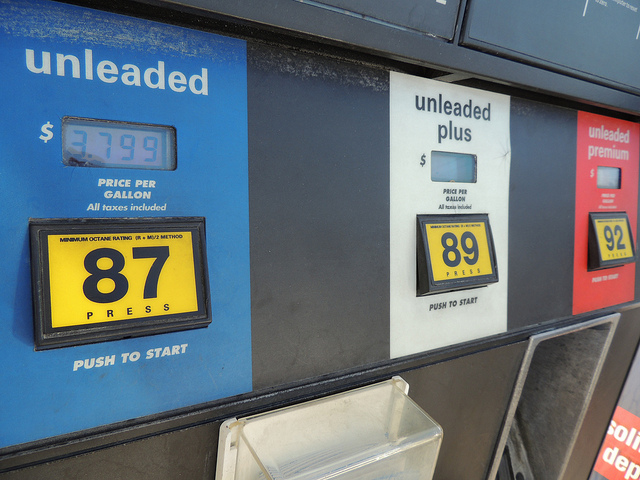
Last week, President Obama signed a two-month extension for the Highway Trust Fund (HTF). The Highway and Transportation Funding Act of 2015 was passed two days before funding was set to run out and marked the 33rd stopgap funding measure for the HTF within the last ten years. Congress has been given the opportunity to truly reform the HTF and practice fiscal responsibility, but instead the government has chosen to use our nation’s infrastructure crisis as an excuse to raise taxes on Americans.
The most recent round of debates over the way the government fund’s the HTF highlights Congress’ increasingly common practice of kicking the legislative can down the road as an alternative for actually dealing with an issue. The issue at hand is not that the HTF is underfunded or that the current tax fails to meet the rise in inflation, the real problem is wasteful and out-of-control spending.
With the decline of fuel prices over the last year, many members of Congress have used falling prices as an excuse to propose raising the gas tax in order to make up for the $16 billion deficit in the HTF. Along with the 24.4 cents per gallon diesel tax and other excises, the 18.4 cent per gallon gas tax is the main source of revenue for the HTF. The gas tax adds $34 billion to the HTF annually, but its contribution falls short of the $50 billion spent by the government each year.
A common sense solution to the way our highways are funded would be to rein in spending, but some members of Congress would rather increase the gas tax by as much as 80 percent than address the larger issue of wasteful spending at the expense of the taxpayers. Since the 1990’s, the government has overspent in the name of the HTF, using the funds to pay for landscaping, bike trails, trolley rides and even squirrel sanctuaries. According to the Congressional Budget Office, the tax would need to increase by 10 to 15 cents a gallon to maintain the current levels of spending.
According to the Wall Street Journal, the HTF would be 98 percent solvent if the taxes collected for the HTF actually went to funding for highway projects. Meaning if Congress would actually use the funds allocated for the highway for highway expenses, then there would be no need to even consider raising the gas tax. Using taxpayer funds the way they are intended to be used is apparently a revolutionary idea to Congress.
For the next two months, Americans are safe from a hike in the gas tax, but a group in the House is working to make sure that the end of July is accompanied by a major tax increase. Congressman Jim Renacci (R-Ohio) introduced the Bridge to Sustainable Infrastructure Act last month that would increase the gas tax by a whopping 67 percent. Co-sponsored by Democrat senators Bill Pascrell (N.J.) and Dan Lupinksi (Ill.), the massive tax increase would almost exclusively target low- and middle-class Americans as the tax naturally affects these socioeconomic groups more so than wealthy Americans.
Despite Renacci’s plan to raise a tax that has not been raised in over 20 years, there are efforts in the Senate to combat any proposed plans similar to Renacci’s. Senators Tom Carper (D-Del.) and Dean Heller (R-Nev.) are working on a plan that would pair any tax increase with income tax breaks that would benefit the same group of Americans who are adversely affected by the gas tax. While an increased earned income tax credit (EITC) would be a revenue-neutral approach, Republican Leadership has resisted the idea with the exception of House Speaker John Boehner (R-Ohio) who came out strongly opposing any legislation that would raise the gas tax.
Ryan Ellis, tax policy director for Americans for Tax Reform, argued that a deal to counteract a tax increase would be difficult to work through Congress because of the lack of leadership support. Calling the proposed tax increase “radioactive,” Ellis referenced an overwhelming ballot defeat by Michigan voters back in May that would have paired an increase in state levies, including Michigan’s gas tax, with an increase in the EITC.
The Obama Administration has not shied away from weighing in on the nation’s infrastructure funding problem, proposing a plan that would raise taxes on offshore, multinational corporations in order to maintain Congress’ frivolous spending habits, but Senate Majority Whip John Cornyn (R-Texas) said last month that the White House’s plan would not be considered by Senate leadership.
Come July, Congress will have the chance to pass a meaningful, long-term funding bill for the HTF for the first time since 2005. Congress should spend the next two months working on a plan to reduce spending and reform the way HTF funds are used, not proposing tax increases that will hit the majority of Americans the hardest.

